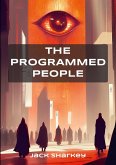"The Island of Anarchy: A Fragment of History in the 20th Century" by Elizabeth Hodgkin Waterhouse and Edwin Waterhouse, explores compelling themes of political upheaval and societal structure in a gripping work of dystopian fiction. Set against the backdrop of the 20th century, this meticulously reprinted edition offers a thought-provoking vision of a possible future shaped by the forces of anarchy. Blending elements of utopian and dystopian ideals, the book presents a unique perspective on political systems and their potential consequences. A testament to the enduring power of speculative fiction, "The Island of Anarchy" provides a captivating glimpse into alternative realities and raises timeless questions about governance, freedom, and the human condition. Ideal for readers interested in political fiction and the exploration of societal structures, this book promises to provoke discussion and spark the imagination. This work has been selected by scholars as being culturally important, and is part of the knowledge base of civilization as we know it. This work is in the public domain in the United States of America, and possibly other nations. Within the United States, you may freely copy and distribute this work, as no entity (individual or corporate) has a copyright on the body of the work. Scholars believe, and we concur, that this work is important enough to be preserved, reproduced, and made generally available to the public. We appreciate your support of the preservation process, and thank you for being an important part of keeping this knowledge alive and relevant.
Bitte wählen Sie Ihr Anliegen aus.
Rechnungen
Retourenschein anfordern
Bestellstatus
Storno









